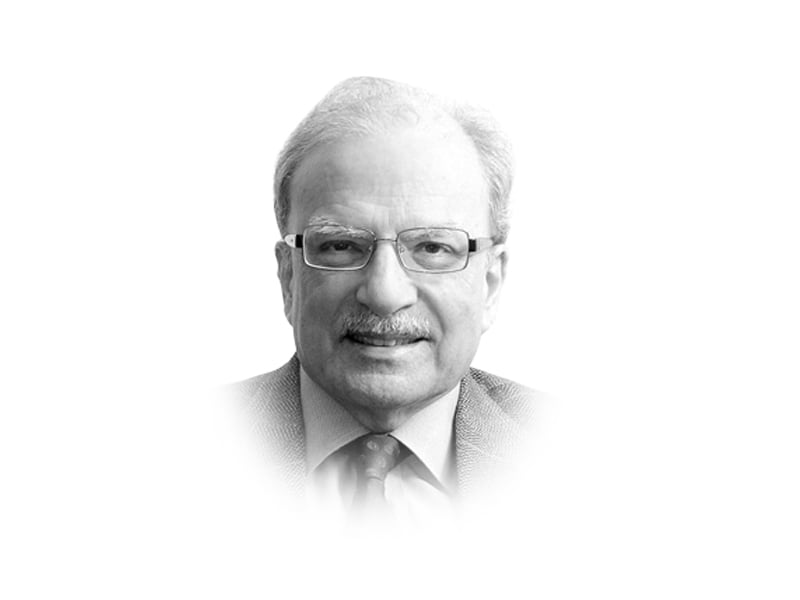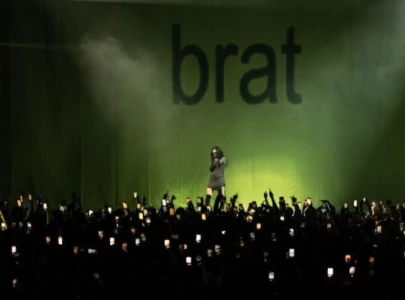
Narendra Modi, the Indian prime minister, paid a state visit to the US in late June and received a great deal of attention from policymakers both in the government as well as those represented in the two houses of the US Congress — the Senate and the House of Representatives. He was the chief guest at a state dinner hosted by President Joe Biden and his wife and was persuaded to join the American leader in a joint press conference. He was reluctant to face the press as he was certain that most of the questions asked would be related to his autocratic ways and to the way his government was treating the country’s minorities, in particular the large Muslim community of some 200 million people.
The Indian Prime Minister also addressed a joint session of the two houses of the US Congress where he was given standing ovations a number of times and was cheered from the gallery where a large number of Indian-Americans were present. While the Indian leader was in Washington, he was the subject of analysis by the media. In this article, I ask four questions and provide brief answers to them — starting with this article and continuing in the weeks that follow. The questions are important not only for India but also for its troubled neighbour Pakistan, where a number of issues concerning its future have been raised.
How should one view the Indian political system as portrayed by the Indian Prime Minister? How should one read the progress the Indian economy has made under the stewardship of Narendra Modi who has governed as the country’s Prime Minister for almost ten years and will most certainly be re-elected in the national elections to be held next year? How should one see his country’s place in the new global order in which the US and China, the world’s two largest economies and military powers, are clashing in a war of words? And finally, if US policymakers have strong views about the direction in which Narendra Modi is taking his country, did they take it up when they met him alone, away from public sight? I will take up the last question first.
There is a charged debate involving a host of analysts about the state of politics around the world. When the Union of Soviet Socialist Republics, or USSR, collapsed in 1991, there were several scholars who felt that the world had reached a point where ideological conflicts were no longer relevant for determining the global future. Among those who held strong views on the subject was sociologist Francis Fukuyama, whose book The End of History became an instant bestseller. After half a century of bitter ideological conflicts, which resulted in two world wars, a point had been reached at which western types of political and economic liberalism would be adopted worldwide. India was an important test of this belief.
This was the central thesis of another important book, The Idea of India written by Sunil Khilnani, a prominent Indian historian who put forward the thought that his country could only accommodate its extreme diversity by adopting inclusive political and economic systems. This was done before the Hindu nationalist Narendra Modi arrived and quickly climbed to the top of the Indian system. Modi’s political party, the BJP, has now adopted Hindu nationalism as embodied in a governing philosophy that goes under the name of Hindutva.
Those in the know say that the concerns about downgrading the religious minorities, which include 200 million Muslims, were raised by US President Biden and US Secretary of State Anthony Blinken in their private meetings with the Indian premier. Previous US administrations have been deeply concerned about the way Modi, when he was the chief minister of the Indian state of Gujarat, dealt with the large Muslim minority. Then, if not actively encouraging his Hindu followers to attack the Muslims who lived in his state, he looked the other way when it was done, and thousands of Muslims were killed and their houses and businesses were destroyed. Taking note of Modi’s perceived role in this episode, the US government decided not to issue a visa to him. This ban was removed by former President Barack Obama when he moved into the White House. From having once being denied a visa and then invited as state guest, Modi has traveled a long way in the US officials’ appreciation of the Indian leader.
“It is vital that these concerns are raised,” wrote The New York Times in an editorial titled The India Quandary published on June 25, as Modi was concluding his state visit. “India has shaped a great and complex democracy out of panoply of people, languages and religious traditions, and it is reaching for a more prominent role in global affairs. But it is also critical to make clear that the intolerance to everything that Americans admire in India, and threaten the partnership with the with the United States that its prime minister is actively seeking to strengthen and deepen. America wants and needs India to embrace India; but Mr. Modi should be left with no illusion about how damaging his autocratic leanings are, to the people of India and for the health of democracy in the world,” the editorial read.
The officialdom in Washington was not the only group of policymakers who were concerned about the direction the Indian political system was taking under Prime Minister Narendra Modi. There were many in the large Indian diaspora estimated to number about 35 million in the US who were concerned with the way Modi and his party were pushing the country of which they were once citizens. The more articulate members of this community published articles in the liberal newspapers in the US expressing the fear that Modi and BJP had abandoned democracy and moved towards autocracy. They were following the examples of several European countries who had taken the same direction. The Indian and political systems in countries such as Hungary and Poland had reacted to the arrival of a large number of Muslim migrants by taking steps to limit their participation in the system. Islamophobia had emerged in parts of Europe as a threat that needed to be addressed. India seemed headed in the same direction.
Published in The Express Tribune, July 3rd, 2023.
Like Opinion & Editorial on Facebook, follow @ETOpEd on Twitter to receive all updates on all our daily pieces.





1719660634-1/BeFunky-collage-nicole-(1)1719660634-1-165x106.webp)







COMMENTS (9)
Comments are moderated and generally will be posted if they are on-topic and not abusive.
For more information, please see our Comments FAQ